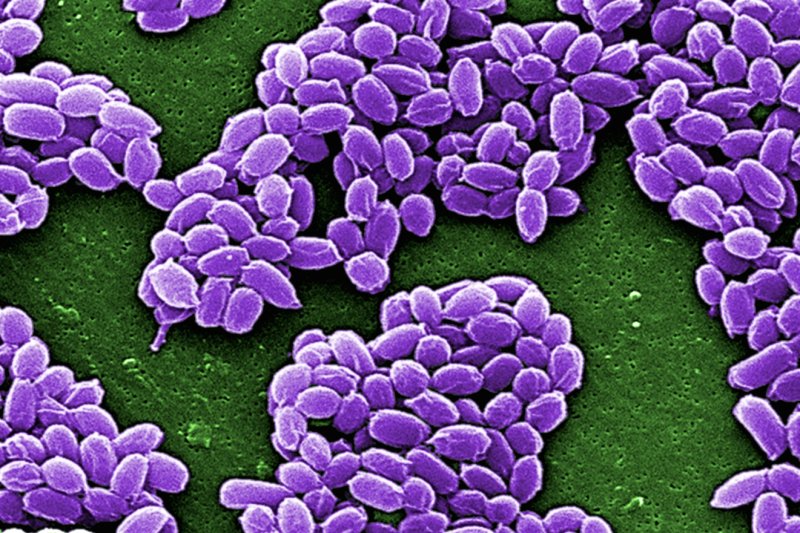Each person is characterized by a unique airborne community of microbes. Image courtesy CDC
EUGENE, Ore., Sept. 22 (UPI) -- Though it may not be as thick as Pigpen's iconic dust ball, everybody travels with their own personal microbial cloud.
According to new research out the University of Oregon, each person's microbe cloud is unique -- maybe even as unique as a fingerprint.
A growing body of research has documented the uniqueness and physiological significance of bacterial communities living on and in humans. Most research has focused on microbes living inside the digestive tract, in the lungs and on skin.
But a new study, published in the journal PeerJ, has highlighted the portion of our collective microbial community that becomes airborne -- bacteria exhaled through the mouth and nose, microbes expelled by digestive gases and microorganisms flaked off alongside dying skin cells.
In analyzing the hovering microbe clouds of 11 test subjects, researchers showed that differences in the combination of airborne microbes could be used to a identify a person who had recently occupied a room.
"We expected that we would be able to detect the human microbiome in the air around a person, but we were surprised to find that we could identify most of the occupants just by sampling their microbial cloud," lead study author James F. Meadow said in a press release.
Our microbial signatures are left everywhere we go, and forensic scientists have already been working on using microbial analysis to track potential suspects and identify instances of sexual assault.
"Our results confirm that an occupied space is microbially distinct from an unoccupied one, and and demonstrate for the first time that individuals release their own personalized microbial cloud," the authors concluded in their paper on the subject.
But microbial clouds don't last forever. Within hours of arrival, a person or family staying in a hotel room full of foreign bugs will alter the microbial makeup of the air -- making it their own. But within hours of leaving, that unique microbial mix will have changed.
Likewise, it's not clear how a person's microbial cloud might be identified among a group of people, where bacterial signatures can be muddled by the presence of others.
Still, the new findings brings the possibility of a range of followup studies, whether in the field of forensics or infectious diseases.















